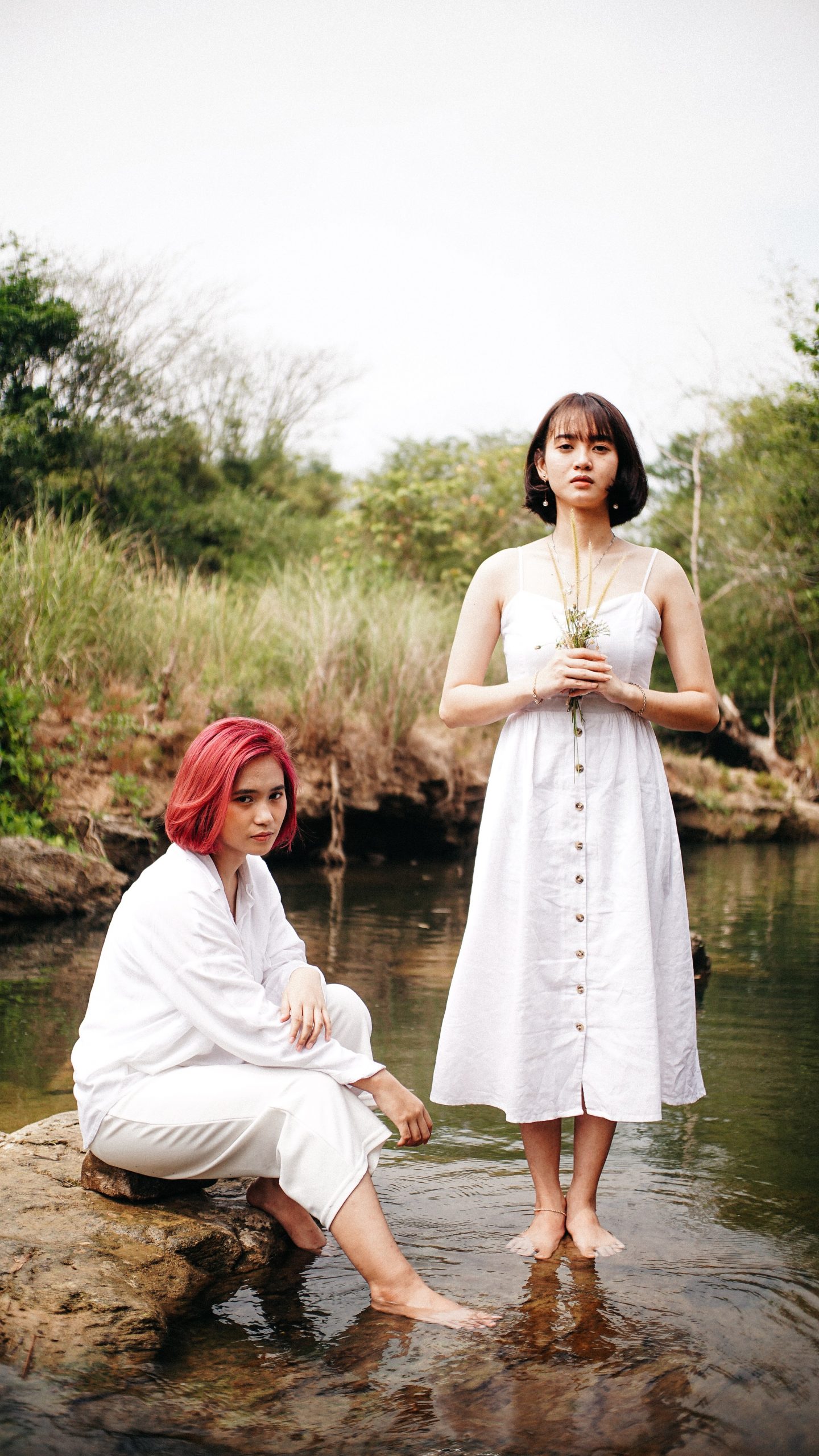I lost a friend by not doing what she expected me to do. I felt guilty and sad, but like always, mistakes are also valuable lessons.
Today, I made a decision that caused my friend to feel upset, hurt, and angry. I gave her my word and then broke my promise, and with that, her trust in me and our friendship too.
Part of the issue was a contract I had signed and a deposit I had to transfer within three days, which I had promised to do two weeks ago. We’ve been having that agreement for over a month and she relied on me, but I canceled the contract and did not transfer the money. Breaking the agreement made her upset and, maybe, she ended up losing the money too.
“What a sh*itty move,” one might think. And I get it, it isn’t nice to let people down.
But here’s my inner conflict: should I avoid the drama by fulfilling other people’s expectations so that they are happy and content? That’s what a “good girl” or a “good person” would do, right? Or should I put myself first?
What makes you a good or bad person anyway?
So I had to jump over my own shadow, despite how much I hate hurting other people. For most of my life, I tried to maintain peace and harmony in my relationships, whether personal or professional. But honestly, if I could go back in time and change it all, would I act differently? No—I would stick to my decision, even if it meant letting her down.
Do I have a heart of ice? No. My heart is so sensitive I even cry when I listen to a sad song for two minutes.
Still, I am at peace with my seemingly cold-blooded decision, and here are my reasons why:
1. Take responsibility for your own happiness
My decision came from an intention to do what is best for myself. My cancellation of the agreement was the best decision for my own well-being, not for my friend. Oftentimes, we are taught to put other people before our own needs. But how does that work out for everyone? How can we know what is best for other people if we don’t always know what our own hearts need?
Let’s give ourselves permission to take care of our own hearts first. Everyone has the responsibility to ensure their own happiness. You cannot pour from an empty cup.
If everyone takes the responsibility to fill their own cup first, we will be overflowing with energy to share it with others.
However, putting our own needs first sounds egoistic and self-centered, right? Perhaps the following point might help us accept our feelings of guilt.
2. Don’t take anything personally
Maybe you know this from the Four Agreements by Don Miguel Ruiz. My friend might have taken it personally that I changed my mind, but it had nothing to do with her. Of course, it affected her and I am deeply sorry for how she felt. But here is the thing: experiencing unpleasant, difficult situations in our lives is challenging and can make us upset and angry. These feelings are human, and when we allow them, we can learn from them.
However, if we see ourselves as victims of the circumstances or worse, victims of other people’s actions, we give away our own power. Being a victim can strangely be easier than accepting an annoying situation. You are the center of your suffering in that situation, and you are adding another layer of suffering by holding on to the sad story of how poorly people treated you.
Accepting that someone is just living their life and we happen to be involved in theirs, without intentional wrongdoing involved, requires detachment from the “poor me” attitude. The situation may suck, but we must not add further pain by taking it too personally. Instead, we can stick to the facts without seeing ourselves as the victim.
3. Liberate yourself from the need to judge and worry
Acceptance requires more strength than just feeling sorry for ourselves. But if we learn to accept the circumstances without judging other people’s opinions or reactions, we can liberate ourselves. Judgment is like a burden that drags us down.
If you can let it go, even if it feels unfair, it takes away the victimhood and invites self-empowerment.
Don’t judge people and don’t judge yourself either. We are all learning and nobody is perfect. The world is not perfect and your judgment won’t make it better.
4. Don’t assume anything
Maybe my friend assumed I had changed my mind because I didn’t care about her, or because I am egoistic and didn’t consider her feelings; however, this is not true. It was an assumption.
Thoughts are just thoughts. Observe them with care and ask yourself, “Where are they coming from?” If you want to know how someone feels, ask them. Don’t assume based on the story in your mind.
If you are angry at someone, express your anger, but see if you can be open for the other person to explain their perspective. Assumptions are not reality, and two friends who care about each other can lose that friendship because of their assumptions.
5. Be careful with what you promise or promise nothing at all
This is another lesson from the Four Agreements which tells us to be impeccable with our word. I know I should not have promised my friend something I could not commit to. This mistake is on me.
I overpromised; I told her I would pay her rent and sign the contract, but I did not fulfill this promise. The lesson I learned from this is: next time, be more careful about what you promise. Take your time to reflect on your feelings and possibilities before committing.
Can you be 100 percent sure that you can fulfill your promise? If there is even a one percent doubt, say it. Be honest and say, “I want to promise ‘x’ to you, but I cannot because I have this doubt.”
6. Last but not least: practice self-forgiveness
I won’t beat myself up for giving up on that promise or for breaking it. Will it help my friend if I blame myself for my own mistake? No.
I could offer her help if she would allow me to, but that is now beyond my control. If she decides to forgive me, I will be there to help.
Will it help me to blame myself? No. I can own my mistake, learn from it, and forgive myself because I am just a human and because my intention was never meant to hurt anyone. I keep learning, taking my mistakes as lessons, and forgiving other people if they made mistakes too.
It is okay to put our own needs first and take responsibility for our own happiness, even if other people might judge us. All we can do is communicate as clearly and as honestly as we can, while being careful with what we promise.
How other people react and whether they take our decisions personally is up to them. But the words we speak and how we choose to express our feelings is up to us.







Read 3 comments and reply